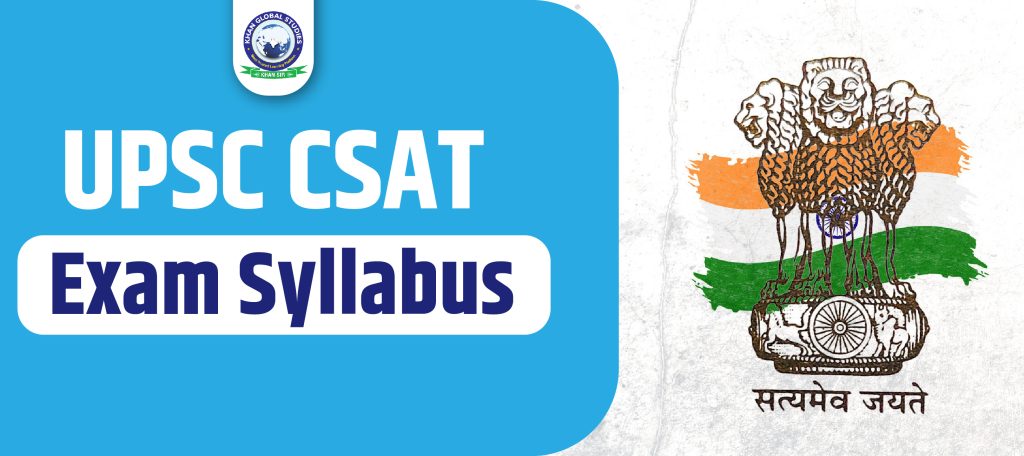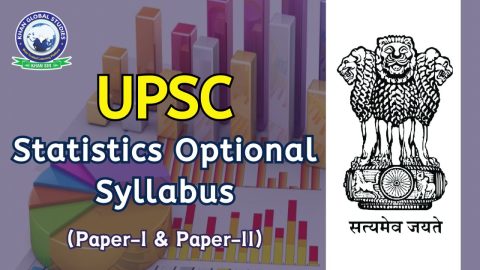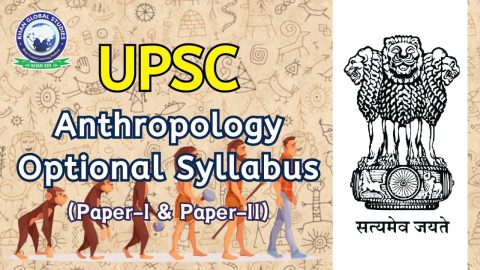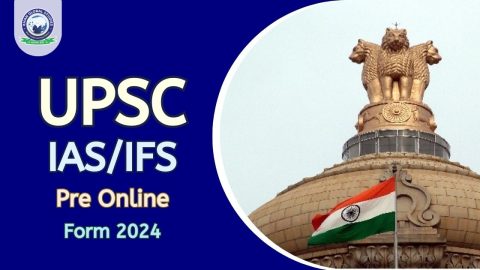
UPSC CSAT (Civil Services Aptitude Test), or GS Paper-II, is an important aspect of the preliminary examination. This comprehensive article aims to provide you with the latest updates on the UPSC CSAT Syllabus, exam pattern and valuable information on each topic covered in the Mathematics and Reasoning syllabus. Furthermore, we will equip you with expert tips on how to prepare effectively for the CSAT course and excel in the Civil Services Aptitude Test.
UPSC CSAT Exam Pattern
To be successful in the CSAT exam it is necessary to understand the exam pattern well. This section highlights the structure of the CSAT paper, which includes various sections like Comprehension, Logical Reasoning, General Mental Ability and Basic Numeracy. It is important to know the marks distribution and qualifying criteria (scoring a minimum of 33% marks) to qualify for the preliminary examination and proceed to the main stage of the Civil Services Examination.
| Subject Section | General Studies II |
| No. of Questions | 80 Questions |
| Maximum Marks | 200 Marks |
| Type of Exam | Objective-Type Exam (MCQs) |
| Mode of Exam | Offline (Pen & Paper) |
| Time Duration | 2 Hours |
| Negative Marking | 1/3rd for each wrong answer |
| Language of Exam | Hindi or English |
| Qualifying Marks | 66 Marks (33% Qualifying Criteria) |
UPSC CSAT Syllabus
The UPSC CSAT syllabus covers these essential topics, providing candidates with a comprehensive assessment of their aptitude and skills. We have provided a detailed description of the significant components of the syllabus and its importance in the examination process.
| Categories | Topics |
| Comprehension | English/Hindi Paragraph Comprehension |
| Interpersonal Skills | Analogies Critical Reasoning |
| Logical Reasoning | Logical Reasoning Analytical Reasoning Analogy Classification Mixed Series Number Series Coding Decoding Blood Relations Decision Making Problem-Solving Input-Output Venn Diagrams Coded Inequalities Distance & Directions Alphabet Test Puzzle Seating Arrangement |
| Decision-Making & Problem-Solving | Hypothetical questions based on ethical dilemmas Decoding facts logically into answers |
| General Mental Ability | Simple Interest Compound Interest Profit and Loss Time and Distance Time and Work Partnership Work and Wages Upstream or Downstream Pipe and Cistern Problems Algebra Mixture and Allegations Mensuration 2D Mensuration 3D GeometryStatistics Probability Permutations and Combinations, etc |
| Basic Numeracy | Number Series Number System Fundamental Arithmetical Operations Simplification & Approximation Percentage Decimal Fractions Ratio and Proportion LCM and HCF Rational Numbers Squares and Square Roots Cubes and Cube Roots Average Surds and Indices Basic Set Theory Divisibility Rules Remainder Theorem Unitary Method Ratio to Percentage |
| Data Interpretation | Data Interpretation 2D & 3D Pie Chart Bar Graph Vertical Bar Chart Bar Graph vs. Histogram Arithmetic Reasoning Missing Number Cause & Effect Order & Ranking Sequences and Series Data Sufficiency Calendars Clock Reasoning Problems on Ages Cube and Dice Mirror Image & Water Image Syllogism Statement and Assumption Statement and Argument Statement and Conclusion Statement and Course of Action Statements in Mathematical Reasoning Critical Reasoning Situation Reaction Test |
UPSC CSAT Exam Preparation Tips
Preparing for the UPSC CSAT (Civil Services Aptitude Test) exam requires a strategic approach. Here are some essential tips to achieve excellence:
- Understand the syllabus: Familiarize yourself with the CSAT syllabus, including comprehension, logical reasoning, decision-making, and data interpretation.
- Practice regularly: Consistent practice is important. Solve previous years’ question papers and give mock tests to assess your progress.
- Improve reading skills: Increase your reading speed and comprehension by reading newspapers, magazines, and miscellaneous texts.
- Focus on basics: Strengthen your foundation in mathematics, as basic quantitative aptitude is important.
- Time Management: Manage your time wisely during the exam. Allot a specific time limit for each section.
- Critical Thinking: Develop logical reasoning and necessary thinking skills through puzzles and brain teasers.
- Stay updated: Stay aware of current affairs to tackle questions related to recent events.
- Health and Wellness: Maintain a healthy lifestyle, exercise and get adequate rest to stay alert during preparation.
- Stay positive: Stay inspired and maintain a positive attitude. Have confidence in your abilities and keep on.
Remember, success in the UPSC CSAT exam can be achieved with dedication, consistent efforts and a thorough approach towards preparation.









Paper 1 and 11 syllabus